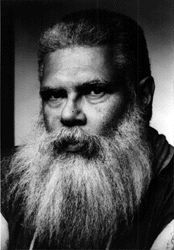
So I've been going to a SF book group on and off for a couple years now, mostly when they read classics I've been wanting to read, and I've read a few on my own or with other groups. (I'm a shameless cherry-picker.) Really loved Ender's Game by Orson Scott Card, and The Man in the High Castle by Philip K. Dick (whose fans, I've read, are Dickheads!). I thought 1984 respectable (much more interesting after reading a great essay on the book by Louis Menand in the New Yorker), but that Fahrenheit 451 is valuable for a few ideas but stinks in terms of prose, character and plot (gee, that's quite a lot of stink, isn't it?). Heinlein's The Moon is a Harsh Mistress was better, and provacative, but many of its ideas were annoyingly libertarian. The Parable of the Sower by Octavia Butler was a complete and utter disappointment all around--just lefty apolcalyptic pessimism at its worst. How it can even be called SF is just beyond me. Sure, 1984 and Harsh Mistress are also primarily political/sociological in their concerns, but there's at least *some* science fiction elements to them (issues of technology, space colonization, etc.). Better to call it merely Dystopian fiction. I expect SF to play with ideas, even if it's at the expense of character, but Sower's ideas are just to exaggerate contemporary urban strife and suggest that if people band together they'll have more of a chance. Her views of how far and fast human nature can devolve is insulting, worse than zombie movies. Life is Hell, so follow me. I'll devise my own cult spirituality and be your leader. You know what? Fuck that.
The Left Hand of Darkness is the first book I've read by Ursula K. LeGuin, and for a book I didn't really enjoy reading much, I was amazed at how much I had to say about its ideas, concerns, themes. I was expecting it to be about gender much more than it actually was. Instead, the book's main theme was wholeness. Basic set-up: in the distant future, Terrans are part of a large alliance of humanoid-inhabited worlds and are reaching out to new worlds to join. Should be familiar to anyone who's seen any episodes of the original Star Trek. The aliens of this book are all "bisexual," which in this case means they all have male and female reproductive parts. Anyone can sire, anyone can give birth. I expected this to play out as a metaphor about gender here on Earth, but LeGuin treats the Gethenians as a distinct race, and it's their contrast with humans that sparks a lot of interesting ideas and thought. I read this with a gay men's book group, and some of the members really found the sexual material in the book to be provacative. I didn't. That was interesting to discuss. (Basically, I didn't find the Gethenians to be sexy, as depicted by LeGuin. She basically protrays them as aloof and fat.) The societies of the planet remind me of a Cold War-like situation between a society like Japan and one like the USSR. Lots and lots to discuss, but as I said, not the most enjoyable read. The protaganist spends most of his time cold, suffering and on the run. (By the way, I recently read a juicy review of her Earthsea fantasy books.)
Then recently I read Babel-17 by Samuel Delaney, an author I'd been meaning to read for some time. I was awe-struck. Though written in the 60s, the novel is far ahead of its time in dealing with many issues (like body modifcation like scars and tattoos but taken to a much more imaginative extreme) that are prevalent today. In some ways, this book represents one of my ideals of the novel: slim and packed with ideas. All the fat cut out. Similar to Neuromancer in this respect, but Delaney's a much better prose writer, able to incorporate poetry (the protaganist, Rydra Wong, is a poet of interstellar fame) and hard science ideas. Every chapter brings new treats. The book is like Christmas. By the time I was done I almost felt guilty--should "literature" be so enjoyable? There's a story mentioned in the novel, called Empire Star, and recent editions of Babel-17 include it as a flipside edition. Empire Star, novella length, is an even more aerodynamic story, a bit more wacky and psychadelic, but an intellectual puzzle set. Great fun. It's strange and complex, and I'm not sure it all ties up in the end, but it's admirably smart and clever. Wow, I look forward to reading more Delaney. I would definitely rank him up there with Dick as an exciting and innovative SF writer.
Labels: Book Review


0 Comments:
Post a Comment
<< Home